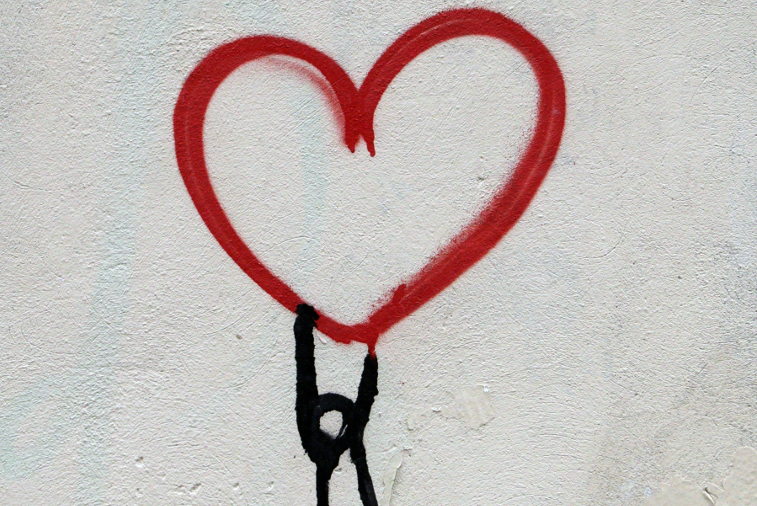What Could Possibly Go Right? kicks off this fall with a three-way conversation between Kate Raworth of Doughnut Economics fame, Roman Krznaric, author of Empathy and The Good Ancestor, and myself, a student of all things resilience and relocalization.
How do we all fit together in one podcast? We all look at the social and psychological side of sustainability, not just the geophysical or environmental. We have also spent our careers devising new and hopefully more effective heuristic devices (models, diagrams, teaching tools) to reveal to people that we are heading off a cliff… but better paths are possible.
When I invited Roman to be my guest, I didn’t realize that he was married to an old acquaintance, Kate! He caught my attention through his book, Empathy. Coming out of the first year of “What Could Possibly Go Right?” I’d realized that, in addition to the “4 E’s” of the Post Carbon Institute—energy, economics, environment, and equity—a fifth “E”, empathy, is required to address what PCI calls “the great unraveling.” Thinking about our problems without allowing them to touch your heart, make you grieve or pause in wonder, doesn’t have the moral and emotional power to shift our society. Roman extended an eager yes and reminded me that we’d met decades ago when I visited Kate in the UK. Would she join us? Yes!
The conversation was long in part because these two guests each had a lot to say and in part because we were bouncing off one another and having too much fun.
In the middle, we stumbled on our shared insight that the common definition of “freedom” in our materialistic societies is the taxi driving us off that cliff. People act as if freedom is the power to say NO to what you don’t want and YES to what you want. Marry that to hyper-individualism and you have personal entitlement without social responsibility. I told them I’d written a book – as yet unpublished – that tries to work through the complexities of the limits to freedom and the power of limits. Then they turned the tables and interviewed me about the language I’d crafted to (as I said) “have Americans fall in love with limits the way they’d fallen in love with freedom.” I promised them I’d get that teaching not just wrestled to the ground but between the covers of a book. In the meantime, here’s a version from my blog.
In a way, Richard Heinberg’s new book, Power, wrestles with similar themes. Power, the ability to make something happen, courses through all of life. Hitched only to personal freedoms, though, it alone can’t set us on a proper course. Then hitch power to both personal freedom and abundant fossil energy and you have a runaway train. We are now up against implacable ecological and social limits. We will learn together, or risk perishing together.
Take for example the old Mad magazine’s feature, “Spy versus Spy.” Each spy concocted ever more elaborate ways to out-maneuver the other. In systems theory it’s called “competition and escalation.” Without a “governor,” a sensor that flips a switch when a process is out of control, this one-upping will burn up the whole machine.
We need limits to free us from hitting a wall. What limits? Where? How? Honored by whom? Variable in what ways? And whatever the plan, how do 8 billion people assent to it? Aye, there’s the rub! The very question that I, PCI, and of all my guests, wrestle with.
Richard Heinberg has truly gotten to the heart of the matter. Our assignment is to wield our Icarus powers wisely. If freedom is only “power-over,” an endless quest for dominance, we will surely not make it.
What Could Possibly Go Right? will search for arising ideas, in the middle of this stress and mess, to which we can contribute our energy. As always with the podcast, we will seek to see more clearly, act more courageously, and serve the common good. Because we are on to the question of the right use of power, we have chosen to explore the 5th “E” – empathy – further in the months ahead. We are inviting guests with insight and experience in lowering the temperature of power struggles and opening a way to come to mutually beneficial solutions.
William Ury, author of the classic Getting to Yes guide to mediation, coaches me in an upcoming episode through an intractable problem. Here are some of the other scouts I intend to invite and hope will say yes:
Amanda Ripley, author of High Conflict, blew my mind open by observing that framing a problem in binary terms inevitably leads to thorny conflict. My way or the highway. Us versus them. Red versus blue. Without a third, fourth, or fifth option, all the marbles fall off the knife edge of a binary issues settle on one side or another. She then explains that “conflict entrepreneurs” will exploit the binary to build power for themselves by inflaming people and turning them further against one another. Once that fuse is lit, it takes immense skill and humility to withdraw.
Dr. Fania Davis is an eloquent expert in restorative justice.
Stephanie Rearick launched the Mutual Aid Network to build social intelligence about systems of mutuality and reciprocity.
Are any skillful conflict transformers on your radar? Wise social psychologists? Spacious activists? Story-tellers?
This podcast itself is an effort to find a path to wholeness through these critical times of coming apart. “What could possibly go right?” turns our attention to the spaces always opening up between impassioned antagonists. I invite you to join us on the voyage.
Photo by Nick Fewings on Unsplash






